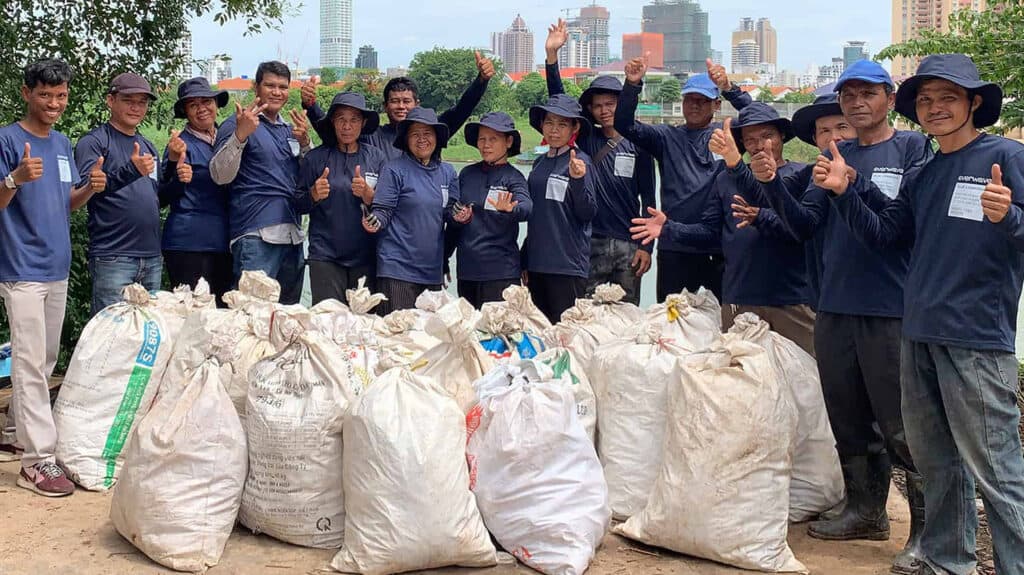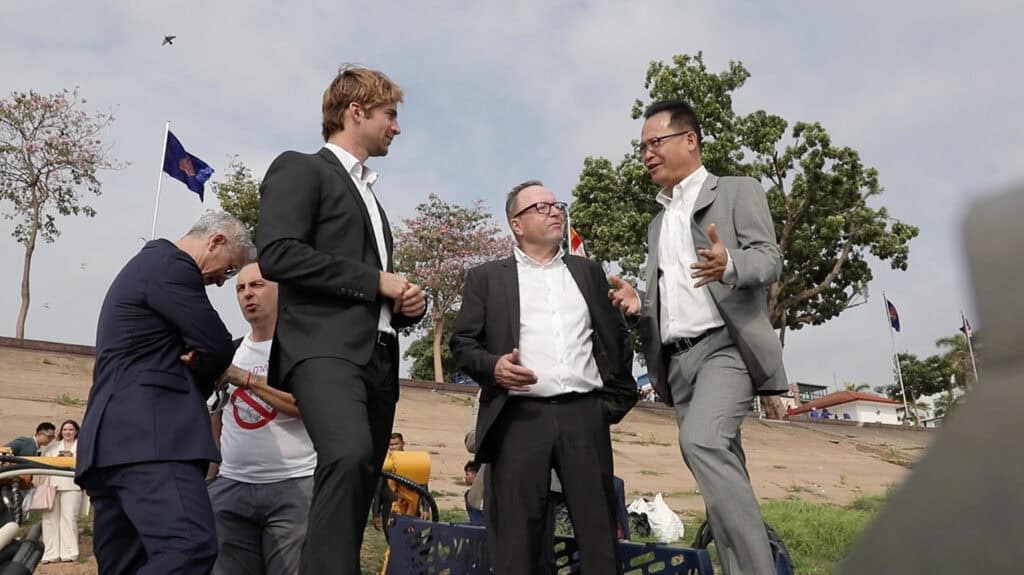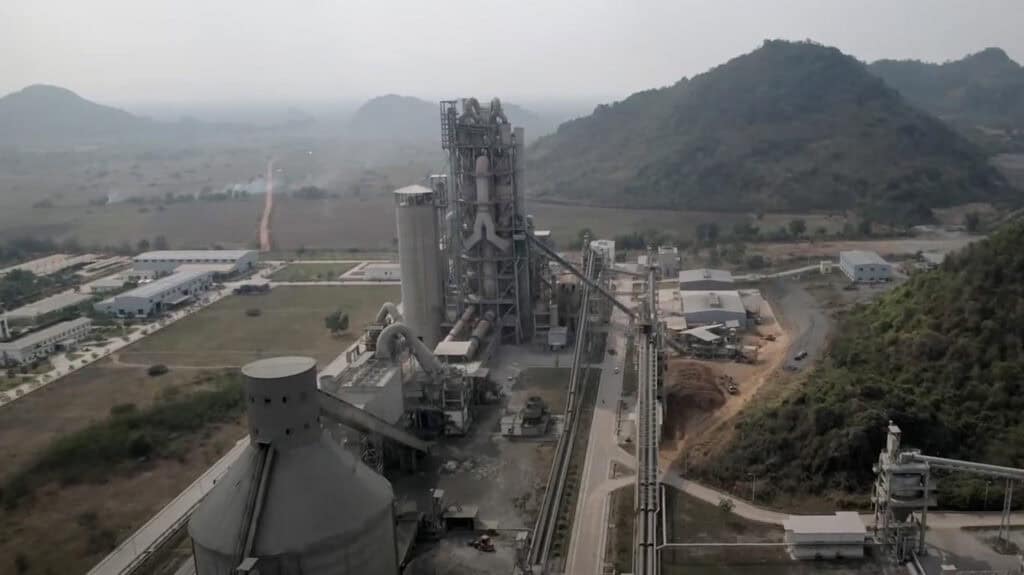Cambodia
One of the longest rivers in the world has a massive waste problem – everwave’s first long-term project is starting right there, on the Mekong in Cambodia.
Cambodia
One of the longest rivers in the world has a massive waste problem – everwave’s first long-term project is starting right there, on the Mekong in Cambodia.
Overview
LOCATION
River
Kind
Certification
active since
Phnom Penh and Kampong Chhnang, Cambodia
Mekong,
Tonle Sap
River cleanup with garbage collection boat, manual bank cleanup
Ocean Bound Plastic Standard
August 2022
Location
Our first long-term cleanup site is located in the capital of Cambodia, Phnom Penh, directly on the Mekong River. The location was chosen specifically because one of the longest rivers in the world has an extreme waste problem: the Mekong is one of the ten most polluted rivers in the world.
Originating in the Tibetan highlands, the Mekong crosses six countries and flows into the South China Sea. For the people living along the river, it is an important lifeline and determines their everyday lives as a source of food, energy and transportation. The big problem: in many cities along the Mekong there is no functioning waste disposal system. The garbage ends up in illegal landfills, the environment or finds its way directly into the river.
In addition to Phnom Penh, a second location in Cambodia followed in January 2025. Manual cleanups take place in the city of Kampong Chhnang, on the Tonle Sap River. The Tonle Sap rises from the lake of the same name, the largest freshwater lake in Southeast Asia, and flows into the Mekong in Phnom Penh. The problem here is that there are numerous so-called “floating villages” along the Tonle Sap, which also have no waste infrastructure.
Infrastructure
The waste collection boat is a central component of our infrastructure. This was specially developed for use on rivers, can drive directly into the waste accumulations and transport the waste out of the river via a conveyor belt. Additional manual clean-ups are carried out within a radius of 200 m to prevent the waste from entering the river from the banks.
We also work together with clean agents. They regularly bring collected waste from the environment, the Mekong and its tributaries to our Zero Waste Center for further processing.
Once the waste has been collected, it is sent to our Zero Waste Center in Phnom Penh. Here, the collected waste is first dried and then sorted by hand. As different types of waste are found, which have different potential for recycling, the waste must be separated and prepared for further processing.
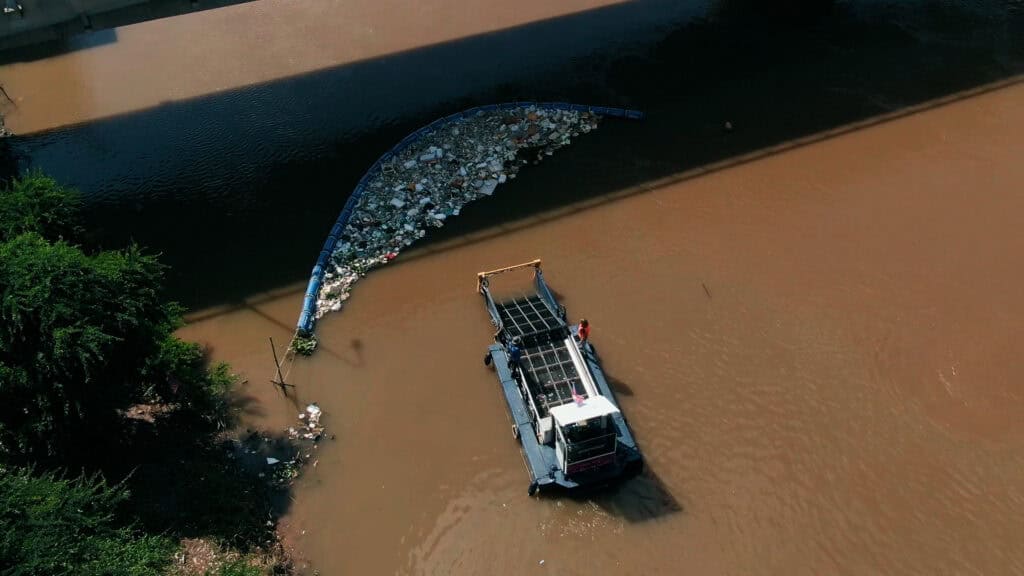
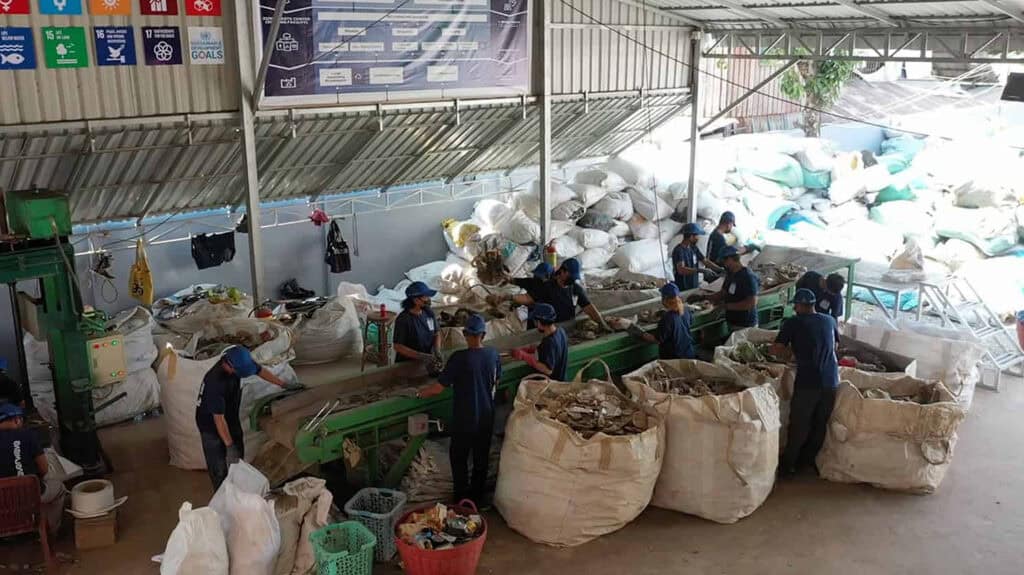
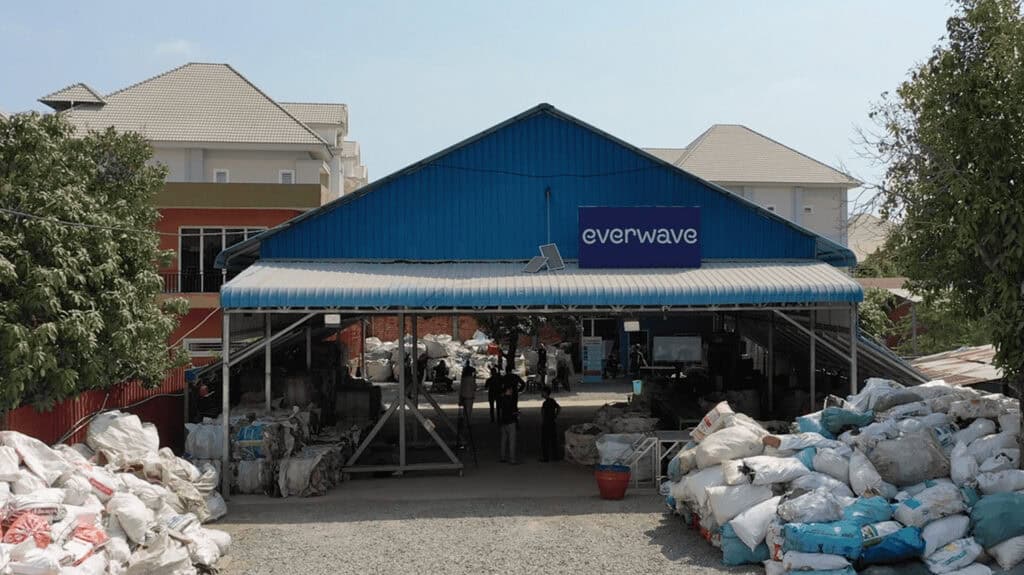
Waste composition and recycling
The waste that we collect in Cambodia is made up of a wide variety of materials. We currently sort the waste into the following categories: PP, PET, PS, HDPE, LDPE, PVC, textiles and non-recyclables.
In the area of recyclable plastic waste, we mainly find PET (polyethylene terephthalate, mostly used for plastic bottles and films) and PP (polypropylene, mostly used for packaging). We sort out these recyclable types and sell them to a local recycling plant, where they are then processed further.
Unfortunately, the non-recyclables have no further value. Here we work together with a local company, Chip Mong Ecocycle: the waste is collected by Chip Mong Ecocycle and sent to their factory for so-called co-processing. This is a process in which the waste is used as an energy source instead of coal and burned in a controlled manner to generate energy for a cement factory.
We pass on other waste that can still be recycled to local recyclers, including glass and metal, for example. A small amount of waste is neither recyclable nor recoverable at Chip Mong Ecocycle – we have to pass this on to local landfill sites as we have no other option for recycling. In 2023, this amounted to less than 10% of all waste.
These different types show how important it is to sort the waste in our Zero Waste Center in order to be able to process as much as possible and prevent it from ending up in the environment again.
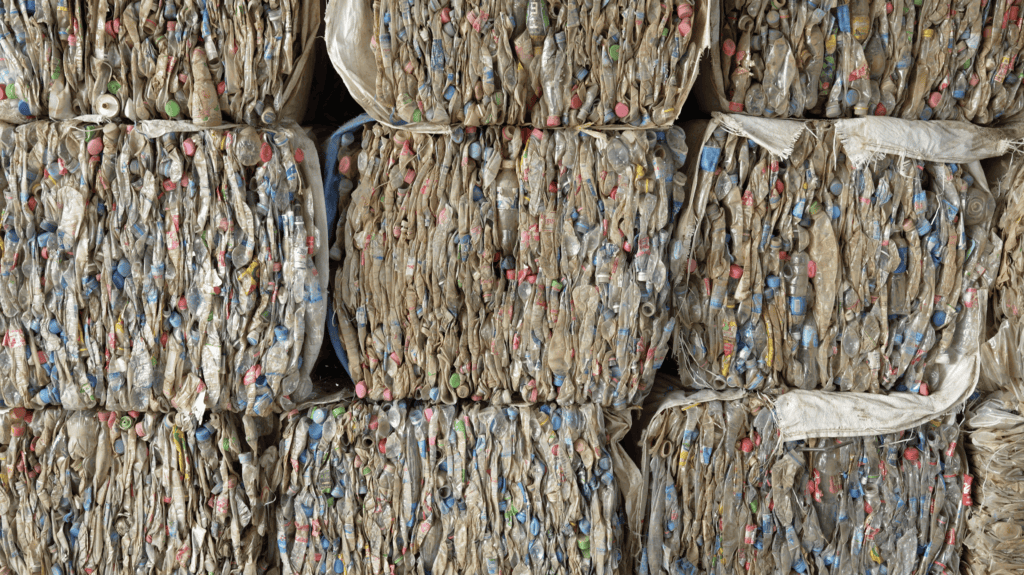
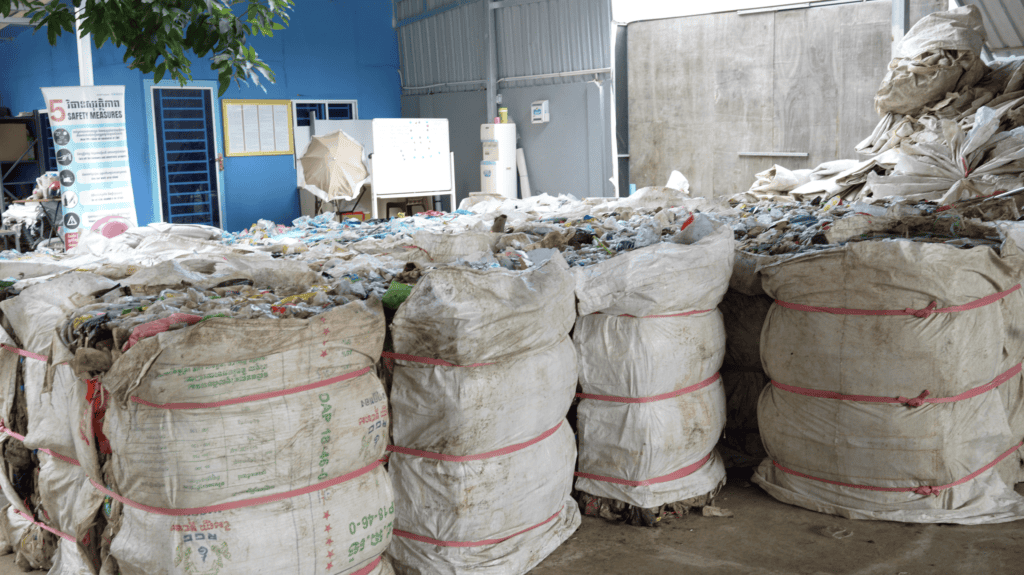
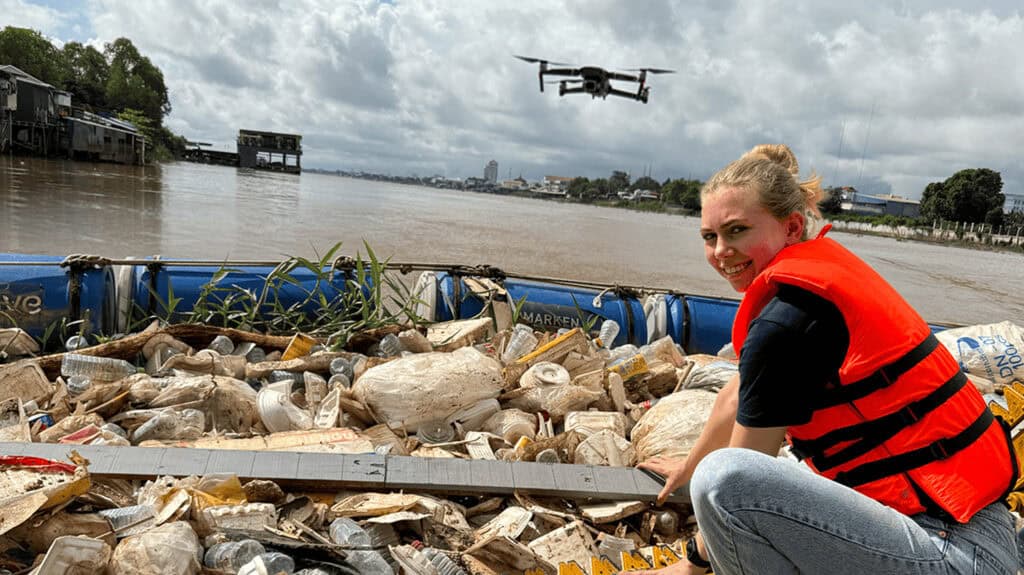
Local partnerships and team on site
As we are active on the ground, it is important for us to work with local companies, politicians and stakeholders in order to ensure a long-term and holistic impact.
In addition to our cooperation with Chip Mong Ecocycle, we also work with ReMade Cambodia, a textile company that upcycles textiles that can still be used. Around 10% of all the waste we collect in Cambodia consists of textiles – if they are still usable, we give them to ReMade Cambodia, who work with local designers to make new garments from them. We also work closely with the Cambodian government. Together with the Ministry of Environment, we have signed a 5-year agreement to work together to make Cambodia and the Mekong cleaner.
And of course, our local team is an essential part of the projects. In Cambodia, there are two project managers who take care of the implementation of the project and our boat. There are also wonderful employees who steer the boat, collect the garbage by hand on the shore and sort it at the Zero Waste Center
